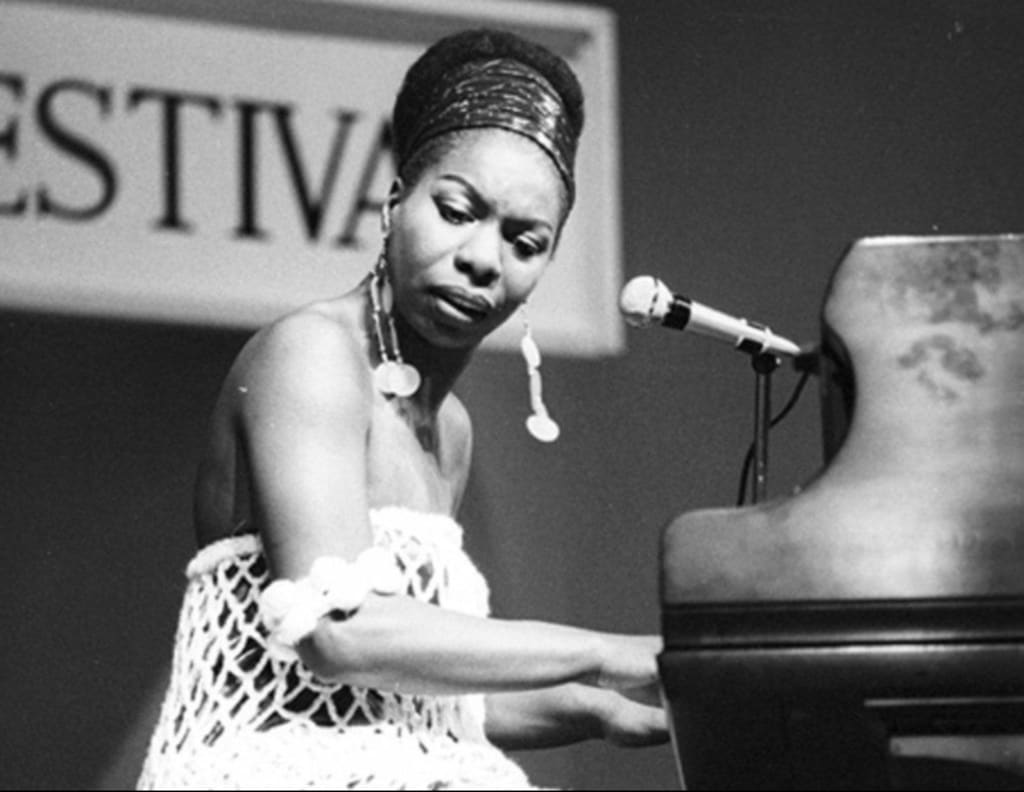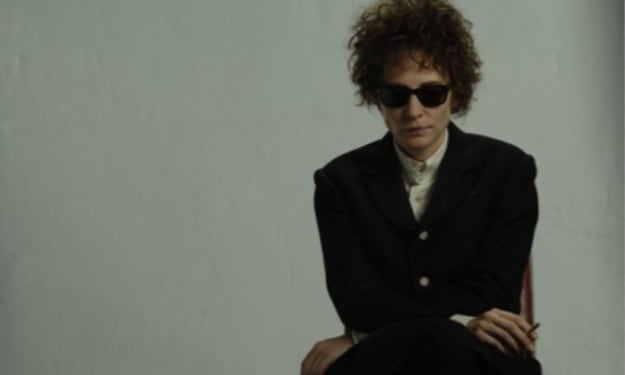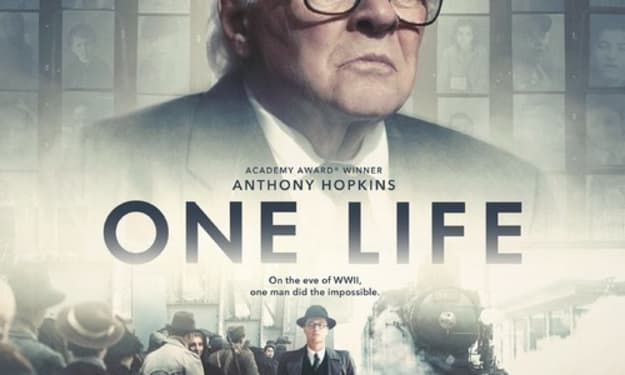Women Who Inspire: Nina Simone Is Not Kidding Around
She just wants you to listen

Ah, Eunice. Though not as widely hand-wrung as Sylvia Plath or Virginia Woolf, Nina Simone (born Eunice Waymon) is just as much a genius and just as much tragic. Her end isn't quite so widely sensationalised as those of her fellow female heroines but hers is somehow more personal to me, despite her and I being the most opposite two women could possibly be in our respective situations.
First, I don't have a modicum of her talent - but like her, I did take up classical piano at a young age. I was seven and she was four. She loved it. I did not. There were tantrums, believe me. However, I come to love and cherish dearly the place playing classical music occupies in my life and enjoy it as a hobby. Once again, Nina and I are on the opposite ends of the scale. She would come to rely on it and over the years, the piano, like many things in her life, started to control her. She came to hate it and even eventually due to old age, was not able to play. Something of an unfished symphony or coda to her last years when the piano might have become available and a safe haven for her once more. I count myself lucky that I control the place piano takes up in my life.
The reasons Nina inspires me are threefold and complicated. They take me to very dark places in my own situation and aspects of my personality I hide away, while other amazing things she achieved encourage me to come out into the light. Nina was a born performer, and after a focused, if lonely childhood, the Eunice Waymon Fund took her to Juilliard. She was set to go to the Curtis Institute and become the world's first female black classical pianist when she recieved a rejection letter six months later.
"It took me about six months to realise it was because I was black."
There's no way I can even imagine this level of anger or pain at the shattering of a long held dream taken from you so callously in a decision based purely on race. All I can feel in sympathy is my own frustration with my inability to play the piano as I would like: by 15, educational psychotherapists have discovered what made playing the piano so profoundly difficult and making playing by ear a necessity for me. And you can't play Rachmaninov by ear at Wigmore Hall. It's not possible. My desire to play concerts was a decision taken out of my hands too. But for nowhere near the same wrenching and deplorable reasons.
Yet, Nina still made it. And then some. On the surface of it, she had the kind of career I would have loved - her prodigal talent and proclivity with a piano led her effortlessly to Jazz when its all that could pay her bills in New York. She was told in her second night of her residency in a seedy NYC bar, that if she didn't sing, she wouldn't get paid and it stayed that way for the rest of her life. To me, that is my Alternate Reality and my Dream Life: freedom and the ability to master Bach and effortlessly step into jazz standards like it's nothing and earn a living in the Big Apple - but we forget this is Nina we are talking about. And demons were always lurking around every corner.
I idolise her but the dichotomy comes from the fact that with her nautrual talent, as with the Plaths, Woolfs, du Preys of this world - genius comes with darkness hand in hand like some Faustian contract. With fame also came intense pressure: she felt responsible for her band's livelihoods and this teamed with an intensely violent marriage that would consume her for decades, especially as her husband, unfortunately, was her manager, Nina was a caged bird singing anywhere her husband booked her to be.
My trouble in aspriring and being ispired by Nina is the fact that though I enjoy her amazing back catalogue and extraordinary talent - I am aware of what it cost her. Far be it from me to diagnose, but there were certainly episodes her band recalled of 'someone else' entering the room, and 'not my sister, Nina' which hints at certain issues. She could throw things, become violent and shout savagely at people she knew and loved on the turn of a coin - for the 50s and 60s and their lack of knowledge on all things based on mental health, I am relieved she was never sectioned or 'treated' by the healthcare system of that time, but I return to the disturbed genius theory - those that are talented are suffering.
I cast myself in no way a genius, but I knew I was different from a young age. My vocabualry was advanced for my years, but my numeracy, limited. What you are given in one hand, is taken somewhere else by the other. A disorder lay under my problems with sight reading, but none of my sanctuary in music. Ironically or not, my formative years had the backdrop of Nina's extrordinary discography. Throughout my teens, as I was navigating my desire to shift from acting as I'd trained to do, to playwriting, so did my experience of Nina go from aural to visual. I started to look her up on YouTube. I now know why she was called The High Preistess Of Soul. When she performed, you can tell, you can see it was a near religious experience. She called you to listen, and focus, and hear her. The recordings of her performances of 'I Wish I Knew How It Feels To Be Free' and 'The King Of Love Is Dead' - written just after Dr Martin Luther King Junior's assisnation, and many others, so many - you can hear it, her grief mingling with theirs, palpably: an audience rapt, every time.
I wanted that. But by this time, with piano no longer my central focus, and I wanted that communion for my words. To have that relationship, to have that connection...it remains the only thought I have before a pen goes to paper of fingers to a keyboard. She remains the creative zenith. And as for the religious experince, Nina's mother was a popular pastor in North Carolina, so she knew how to take you to church. I am rigidly areligious, but I feel listening or watching her live performances gets me as close as I can possibly be to worshipping or feeling a deity-like presence. Each concert I see gets me closer to imagining what it's like to have faith, to believe in something.
But ultimately, I believe in her.
Unfortunately, worship, as we've seen across centuries, has a funny habit of eradicating all the bad things your sacred being has done, and makes it so much easier to explain their actions away. Whatever demons Nina faced day to day did not stay in the shadows. Footage of her Montreux '76 concert sees her playing only to keep her head above water financially, already a humbling thing, and throughout she looks dazed and empty. There could have been a number of things that were hanging over her during this performance, but after a downbeat and slow verbal introduciton, she starts to play before suddenly she is all sharpness, lifts her hand off the keys and points into the darkened audience.
"Hey girl siddown."
The audience laughs uncomfortably, perhaps partly in amusement, bemusement or nervousness, but nontheless Nina waits. Repeats herself, stares the leaving audience member down until, presumably the errant source of irritation is neutralised. Then she continues as if nothing has happened. It's extraordinary. It always takes my breath away. In that moment, Nina called the shots. She is one person, there must be hundreds there, and she controlled them, through intimidation, the slight flavour of a threat, the stench of recklessness. I bet people went to her shows never knowing what they would get. I know that's why I would go. Perhaps that's what made her a good performer. Either way, she did a full checklist of things you're not meant to do to a paying audience in the span of seconds.
And I love it.
I watch it sometimes, perversely proud of Nina running the show, even at someone else's expense. She didn't give a flying fig if that was not how you were meant to behave as a performer, a woman, a black woman. And I love her for it, though it rattles the gate of human kindness and comes at someone else's expense. I watch that clip often and try to make my words do the same - I want you to enter my thetare and not know if I'll set my dogs on you. Shake you out of your complacency, through any means I deem fit: intimidation, anger, power.
Does that make me a bad person?
Did it make Leonard Bernstein a bad person when he bullied Tenor Jose Carreras in orchestral rehearsals for a recording of West Side Story? The five minute clip on YouTube shows Bernstein physically meters from Carreras in the booth, and seperated by an orhchestra but mentally in Carreras' face for the length of the clip, intimidating him and succeeding in making it the least condusive, most toxic and nerve-wracking creative space ever caught on film. It makes my toes curl.
And yet we recognise Bernstein's genius, call him 'Lenny', call him maestro, and without really saying it, overlook his tantrums because its seen as a masculine pursuit. Is it the same for Nina when she yelled at her band? She was looked upon as mad, or bad or worse by a racist public, which allowed her dissociation with white people to deepen and her outreach to be limited. While of course a white man could do as he wished and looked on fondly for it. Either they're both heroes or both bullies - and they both should be afforded the same amount of respect, and the mental struggles Nina suffered through at the hands of abuse recognised.
I call Nina a genius. If a troubled one. But she'd probably hate that. Anyway, give it 50 years, and the words 'troubled' and 'genius' may have bled into each other to mean the same thing.
Where I also call her a genius is elevating her art. There are many anthems of a good time, first love, friendship and anniversary that remain popular decades later. But few maintain for the civil rights movement in particular. Enter Nina. Sick of seeing bombings in Montgomery, and lynching in Mississippi, and the lives of black people taken casulally, recklessly and shamelessly. She notes that she was so angry one night due to the 1963 bombing of a church in Montgomery that she wrote what would become a theme of the civil rights movement 'Mississippi Goddamn'. (When a Carnegie Hall audience laughed knowingly at the title she told them "It's a showtune but the show hasn't been written for it yet." ) The swearing of the title was intentional, as were the raw and powerfully current lyrics:
God have mercy on this land of mine/ we all gonna get it in due time/ we don't belong here, we don't belong there/ I've even stopped believing in prayer
She names current political leaders, crimes against black people and where they were committed - it's a rousing militant speech set to a song, and not only that- a showtune! The vampy, upbeat between chorus chord pattern undercuts sharply the bluntness of what she's singing and the result is a chilling mix of upbeat, slightly manic despair. Songs such as 'Baltimore' would follow, as well as essays masquerading as jazzy standards on blackness defined the material she was releasing in the 60s and 70s: 'To Be Young Gifted And Black', 'Backlash Blues' and 'Four Women' among them. Her music became a tool of civil disobedience and transcended the form of the simple song to a higher plane of importance and a piece of social history. Tell me that's not inspiring as heck.
What saddens me though, and I think saddened her too, was the fact that she put a date, and an expiration one at that on her music. It belonged to the movement, and is now more a document of history that the full-blooded, current, live-wire experience it would have been then. It also pidgeon-holed her as a 'political artist' for the rest of her life, closing doors to her even further.
This teaches me that even though it's good to put your name to a cause (I regualrly write on feminist themes, on social corruption and outdated social attitudes) casting yourself as forever the freedom fighter will mark you as one forevermore - and it's something to think about before you throw yourself into your next audience-baiting project whilst throwing some of your legacy away. She reminds me to give myself a chance to think, pick my battles and not be known for one thing.
That's not to say her legacy does not still loom large - she remains the High Priestess of Soul, guardian of truth, a 'Difficult Woman' as she may have been referred to now. I admit, the first I ever head of her was her standard, soft, and far from political version of 'My Baby Just Cares For Me' in a video done in the very early days of Aardman animations. I watched it and became obssesed with it, running the Betamax back again and again at perhaps four of five, before I sat at a piano - and yes the cat is cute, but my favourite part is always the piano playing itself in that blistering, uncontained, sun-through-the-clouds solo before we're back to the descending, quiet, Jazzy chord progression we started with. It also was featured in a Chanel advert in the early to mid 90s, which relit her career, but by this time Nina's health was in decline.
https://www.youtube.com/watch?v=X2AHuRvvHR4
This is a very different Nina to the one I've introduced you to - the fire breathing political tool of disobiedince and furious talent - but she could be both: soft, romantic, loving. As she was in her private life. But perhaps all the songs on 'Little Girl Blue' the first EP of Nina's career, the music of a young girl, fresh out of her classical world, finding an affinity in jazz while trying to pay her family and people of her hometown who raised a fund to get her to the Big Apple. Maybe that's the real Nina - the Eunice, that stuck around under the surface. I hope her sudden resurgence into the charts after the Chanel ad raised a smile for her in the South of France, finally reuinted with her daughter, putting her demons to rest at last, and preparing to leave us in 2003.
When I think of Nina, I think of all the ways I exeperienced her - when my father got me all the recordings in a big block of CDs I immediately downloaded onto my iPod for my 15th birthday (a year we return to for many things in this piece, how strange) and lying on my parents bed, earbuds in, lounging in the sun and just soaking her up. Haltingly learning the four chords of My Baby Just Cares For Me on the family piano by ear of course, walking into a record shop and hearing her over the tannoy and feeling warm, learning about her activitsm and all she did for civil rights and all it took from her, being at a boring temp job where I only needed to answer the phone once a day and bringing a copy of her biogrpahy, reading it over the course of one day and having to sit in the toilets while I cried for her, and now - for the first time here, really exploring what she means to me.
She said once that she was sorry that she never got to be the world's first female classical pianist, and that it might have made her happier. I'm not sure about that, as I'm not sure Nina could ever have been happy. All I can say is that I'm glad she was here.
I enjoy her as one of her loyal pilgrims, a willing student, a guilty consumer and a forever fan - and I take heed of the lessons she suffered through that I can learn from: that even now a headstrong and poltical woman can be demonised and pidgeon-holed, that passion can be mis-labelled as diva-ish behaviour, to not lose sight of my goals, to connect with audiences as viscerally as I can and always speak truth to power. She remains the one powerful creative force in my life, and source of constant inspiration, as well as restraint.
I have no doubt that if I were ever to meet her, I would be met with indifference, even irritation. She might say that I could never, and never will understand the hardships she went through as a black woman. And she'd be right - but I'd still worship her anyway. From afar, with love and full of apology and empathy for how certain parts of her life treated her.
But she was there to show us the dangers of the time she occupied. When she performed 'Mississippi Goddamn' at the Carnegie Hall in 1965 after a particualrly blistering chorus, she waits until the audience recollects themselves from the barrage of anger she's just thrown at them and shouted 'catch!' And as she repeats that two-tone vampy chord pattern she dryly notes:
"Bet ya thought I was kiddin', didn't you?"
Nina may entertain you, surprise and delight you, but one thing she never is, is kidding. And you better listen.
Cheers, Eunice. Play us out if you would.
Nina in the 50s, playing 'Love Me Or Leave Me' via Bach. What a solo. What a woman. Thank you Nina, for your legacy - we should do our best to preserve it. Thank you for inspiring me.
About the Creator
Jessica Bailey
I am a freelance writer, playwright, director and lecturer from London. Self professed nerd, art lover and Neurodivergent, vegan since '16, piano player since 7 - let's see...oh and music, lots and lots of music






Comments
There are no comments for this story
Be the first to respond and start the conversation.